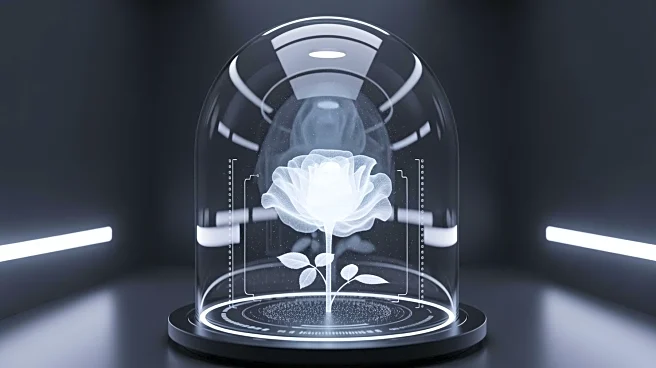What's Happening?
Alan Hamel, the husband of the late Suzanne Somers, has announced the creation of an artificial intelligence clone of his wife, who passed away in 2023 after battling breast cancer for 23 years. Hamel revealed
that the project, named the Suzanne AI Twin, was inspired by discussions with computer scientist Ray Kurzweil in the 1980s. The AI clone has been developed using Somers' extensive body of work, including her 27 books and numerous interviews, allowing it to answer questions as if Somers herself were responding. Hamel demonstrated the AI at a conference earlier this year, showcasing its ability to replicate Somers' persona convincingly.
Why It's Important?
The development of the Suzanne AI Twin highlights the growing intersection of technology and personal legacy preservation. This initiative could pave the way for similar projects, allowing individuals to maintain a presence and continue influencing their audiences posthumously. For fans of Suzanne Somers, the AI offers a unique opportunity to engage with her insights and personality, potentially impacting how celebrities and public figures manage their legacies. The project also raises questions about the ethical implications of using AI to replicate deceased individuals, particularly concerning consent and the emotional impact on families and fans.
What's Next?
As the Suzanne AI Twin becomes more widely known, it may prompt discussions among technology developers, ethicists, and the public about the future of AI in legacy preservation. Hamel's family has expressed support for the project, suggesting it could become a normalized method of communication with loved ones who have passed away. The success of this AI clone could lead to further advancements in AI technology, encouraging other families and estates to consider similar projects. Additionally, the reception of the AI by Somers' fans and the broader public will likely influence future developments in this area.
Beyond the Headlines
The creation of the Suzanne AI Twin opens up broader conversations about the role of AI in society, particularly in terms of memory and identity. It challenges traditional notions of mourning and remembrance, offering a new way to interact with the deceased. This development could lead to shifts in cultural practices surrounding death and legacy, as well as spark debates about the authenticity and emotional impact of AI representations. As technology continues to evolve, society will need to address the ethical and philosophical questions that arise from such innovations.










